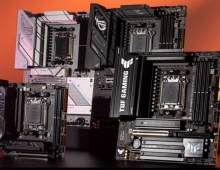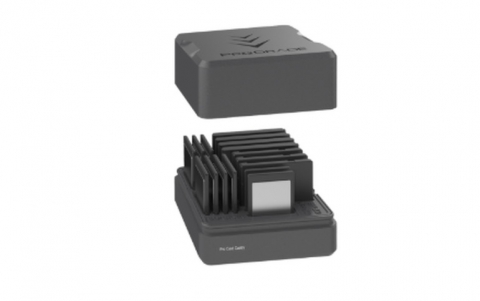
Intel Invests 2.5 Billion Dollars in China Plant
US chip giant Intel said Monday it will build a 2.5-billion-dollar plant in China, a potential landmark moment in the Asian giant's quest to become a high-tech manufacturing power.
The integrated wafer plant, called Fab 68, will be the first of its kind for Intel in Asia, bringing sophisticated technology to a nation more famous for its status as the world's low-end factory floor.
"We would likely look to put in production the most advanced technology that is available under our licensing policy from the US government at the time," Intel President and CEO Paul Otellini told a briefing in Beijing.
Initially the plant, in northeast China's Dalian city, will focus on less advanced chipsets for computers although Intel did not rule out gradually incorporating more advanced technology.
"The opportunity to do other products is really wide open so we will watch that as the market and various government regulations evolve," said Otellini.
"Our objective is to have this be the most cost-effective wafer plant in our network and ... to be able to try out new technology and new techniques of manufacturing to lower our costs."
Construction of Fab 68, which will produce 300-millimetre (12-inch) integrated wafers, is scheduled to begin later this year with production to begin in the first half of 2010, the company said.
It is the first time since 1992, when Intel built its Fab 10 in Ireland, that the company has built a fab from the ground up at a brand new site.
When completed, Fab 68 will be part of an Intel network which by 2010 will include eight top of the line 300-millimetre factories, with other fabs located in the United States, Ireland and Israel.
The Chinese government welcomed the location of the plant in the economically-struggling northeast of the country.
"The investment in Dalian will have a positive impact to the regional economic development and the development of integrated circuits industry in the old industrial base of northeast China," said Zhang Xiaoqiang, vice chairman of the National Development and Reform Commission.
"We would likely look to put in production the most advanced technology that is available under our licensing policy from the US government at the time," Intel President and CEO Paul Otellini told a briefing in Beijing.
Initially the plant, in northeast China's Dalian city, will focus on less advanced chipsets for computers although Intel did not rule out gradually incorporating more advanced technology.
"The opportunity to do other products is really wide open so we will watch that as the market and various government regulations evolve," said Otellini.
"Our objective is to have this be the most cost-effective wafer plant in our network and ... to be able to try out new technology and new techniques of manufacturing to lower our costs."
Construction of Fab 68, which will produce 300-millimetre (12-inch) integrated wafers, is scheduled to begin later this year with production to begin in the first half of 2010, the company said.
It is the first time since 1992, when Intel built its Fab 10 in Ireland, that the company has built a fab from the ground up at a brand new site.
When completed, Fab 68 will be part of an Intel network which by 2010 will include eight top of the line 300-millimetre factories, with other fabs located in the United States, Ireland and Israel.
The Chinese government welcomed the location of the plant in the economically-struggling northeast of the country.
"The investment in Dalian will have a positive impact to the regional economic development and the development of integrated circuits industry in the old industrial base of northeast China," said Zhang Xiaoqiang, vice chairman of the National Development and Reform Commission.





















